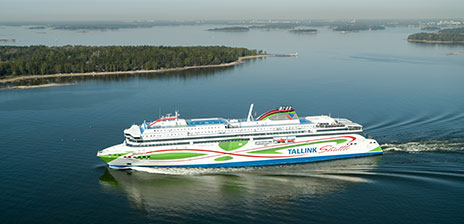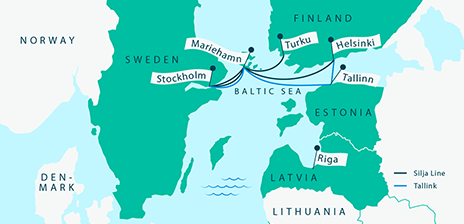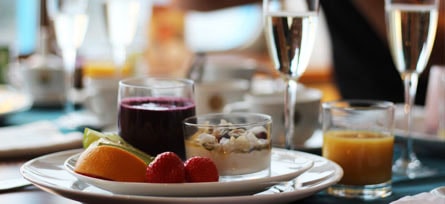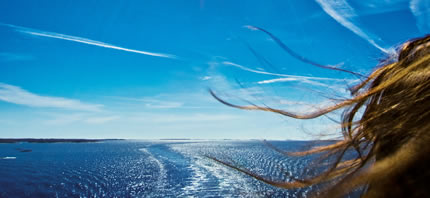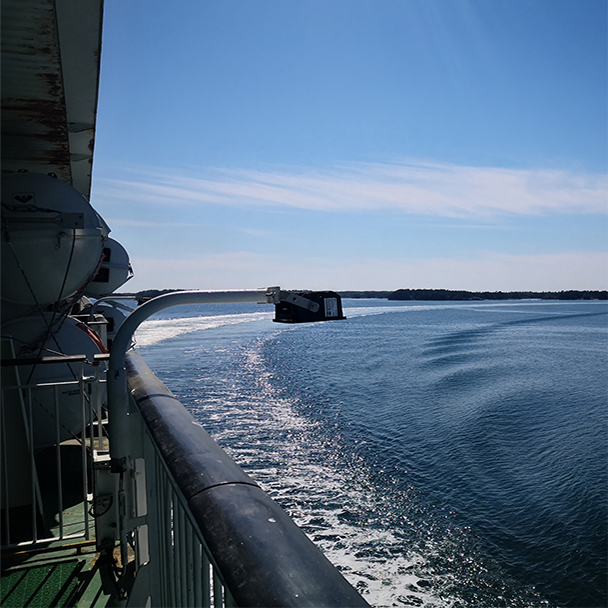환경을 생각하는 탈린크 실야 (핀란드어 비디오)
친환경 경영 및 책임
북유럽 크루즈 회사 탈린크 실야는 발트해의 환경 보호를 위해 부단한 노력을 아끼지 않고 있습니다. 환경 보호를 위한 책임은 우리 모두의 것이기에 저희는 파트너 회사 및 고객층과 끊임없이 소통하여 대안을 찾아나가고 있습니다. 이에 더해 미래의 리더층인 학생들과 아동을 지원하고 교육하는 프로그램에도 다방면으로 참가하고 있습니다.

환경 규정 준수
우리 회사는 국제 및 현지 법률과 규정을 준수하여 크루즈 및 부대 시설을 운영하고 있으며 국제 MARPOL-AFS 및 기타 계약을 현재 따르고 있습니다. MARPOL은 선박에 의한 환경 보호 및 해양 환경 오염 방지를 위한 해양법의 초석을 마련합니다. 이로써 대기 및 해양 오염이 가능한 가장 낮은 수준으로 유지되도록 합니다.

운송 회사 인증
Tallink Group은 최근 ISO 14001 환경 인증을 수여받았으며 Silja Line 선박은 이미 수년 동안 ISO 14000 인증을 보유하고 있습니다. 본 인증서는 기업의 환경 보호 인식 수준을 높이고 사회적 책임을 이수할 수 있도록 하는 대표적인 국제 환경 인증서 모델입니다. 더불어 기업의 활동 내역도 정기적으로 감사받고 있습니다.
-
탄소발자국 관리
환경보호 원칙은 회사 경영에 있어 중요한 부분을 차지하고 있습니다. 이를 실천하기 위한 노력을 최첨단 기술 개발부터 활용까지 폭넓게 이행하고 있습니다.
-
폐기물 재활용
금속, 플라스틱, 유리, 판지, 유기 및 특수 폐기물은 선상에서 규정에 따라 재활용됩니다. 폐기물 처리 및 양은 국제 MARPOL 규정(해양 오염)에 따라 정기적으로 감사됩니다. 혼합 폐기물은 소각장으로 운송되어 가열 에너지 등으로 전환됩니다.
-
탈린크 실야 환경 파트너
본사는 협력 파트너사들과 함께 환경과 공동체를 위한 노력을 이어가고 있습니다.
-
지속 가능한 식품 공급망
탈린크 실야 선박에서 제공되는 식품은 사회적 책임을 고려하여 현지 공급 업체로부터 공급받은 고품질 재료로 만들어집니다. 책임 있는 해산물 인증은 지속 가능한 개발을 위한 프로젝트의 일부입니다.
-
안전 지침
선박 운영에 있어 안전의 중요성은 늘 강조되어 왔습니다. 아래 링크를 클릭하셔서 각 방면의 안전 조치 및 규정을 확인하세요.
-
사회적 책임
우리 회사는 가족단위 및 청소년 스포츠를 지원하기 위해 다양한 파트너사와 지속적으로 협력합니다. 대표적으로 Kummit Ry를 통한 필수 의료 기기 구매 지원과 Hope ry를 통해 저소득 가정 아동들이 취미 생활과 여가 활동을 할 수 있도록 지원합니다. 탈린크 실야는 활동적인 라이프 스타일을 적극 권장합니다.




